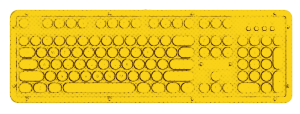
BAD NEWS: There’s no magic bullet to better writing. You’ll need to practise and dedicate yourself to the task.
GOOD NEWS: Here are some guaranteed ways to improve as a writer. Not all pain-free, but definitely effective.
Surround yourself with good writing
Immerse yourself in good books, essays, blog posts and other forms of content. This will help you recognise what good writing actually looks like. Use reading as part of your ‘product research’ and make note of any writing technique or format you find compelling.- Remember that content can be adapted. Don’t neglect content that isn’t in your niche, as you stand to learn a lot from different forms of writing. Read novels, research papers, essays, articles and poetry. They will all help train your ear.
Read out loud
The spoken word unearths jarring sentences or malformed phrases. Reading your copy out loud (or muttering it under your breath) is one of the fastest ways to spot errors in grammar or logic. It’s also great for catching typos. Just try not to do it in public too much or you might get into some trouble…- Reading out loud is a great editorial strategy. When editing, get someone to read their work back to you and see whether they spot any issues themselves. Nine times out of ten they will!
Don’t wait for the ‘perfect moment’
So many people who write won’t write until they’ve cleared all their emails, boiled the kettle, got their pens just so and done about a million other things. If you’re serious about writing, you have do it a lot. LIKE RIGHT NOW. You have to write when you’re frustrated, when you’ve had enough, and when you’re not ready Click To Tweet- Neither life, nor writing, have perfect moments so it’s much better to just get going now.
Write drunk, edit sober
This famous Hemingway maxim has many people reaching for the wine in hope of inspiration. But rather than the ‘drunk’ part, I think it’s the ‘sober’ part that matters. To get the best out of yourself as a writer you need to be calm and collected when editing, removed from the initial frenzy of creation. You need to get outsider perspective on your work and approach it critically. Great editing happens with distance, not intimacy.- Be as critical and analytical as you can. A copy cooling-off period is often needed to help you edit.
Use the tools and tricks of the trade
Not really tricks at all, but dictionaries, thesauruses, punctuation guides, Grammarly, the Hemingway app and numerous other tools are there for you to use them. Use them judiciously, use them wisely, but use them. No writer is an island!- I like to use classics like the Penguin Guide to Punctuation and Oxford’s Modern English Usage, as well as online dictionaries and resources. Find a format that works for you.
Take pride in yourself as a writer
It’s important to take professional pride in your writing. It’s about having an attitude of wanting to work hard to get things right. You’ll have to train yourself to see the subtle nuances in your copy. In the commercial world, perfection isn’t always possible, but it’s something to strive for nevertheless.- Open something you wrote six months ago. Review and edit it again. Can you see the progress? Can you spot anything you would now do differently? Looking back is a great way to hone your craft and see how far you’ve come.
Learn from others, but don’t parrot
Learn from more experienced writers and emulate them if you want. But don’t lose your own voice in parroting someone else’s. You’ll always just be the knock-off version of that other person any way.- Rather than steal a writer’s style wholesale, try to analyse what it is you like about them. Are they funny? Do they use short and punchy sentences? Is it their metaphors that excite you? Remember that not all styles will be appropriate for all briefs, so follow people’s footsteps with care.
Heed tough feedback, even if it hurts
There’s nothing quite like that moment when someone tears your work apart or ridicules your copy. Try not to take feedback personally. Some people give feedback well, others might be a little less good at giving it. Try to understand where they are coming from and listen to feedback carefully. Someone has taken the effort to read your work and it’s provoked a reaction, which is a good thing!- They have an issue with your copy, not with you.
- Tough editors are there to make you grow as a writer.
Write all the time
This one makes every writer list, and for good reason. Writing is like a muscle that needs constant exercise. Carry a notebook, write in your phone, write on your lunch break, write in bed, think about writing in the shower and write in your head whilst you eat. Take ‘writing all the time’ to a level which you find comfortable and which you can sustain Click To Tweet- Vary what you write.
- Let go of criticism and try to get into a flow state to innovate.
Capture ideas better
Faced with a blank paper we all tend to slow down. Cut back on that ‘where do I start’ feeling by capturing content and copy ideas when they come your way. That way, when you begin writing you will already have some ideas. They might be half-baked, but they’ll spark new ones. Ideas are like kindling- they spark new ones Click To Tweet You can use Evernote or any other note-taking programme or app to capture your ideas when they come. The format doesn’t matter, it’s the ideas that do. Segment copy ideas into niches, topics or themes to help you manage your workflow.- Never, ever delete ideas. Archive them if you have to.
- Brainstorm when you feel inspired for maximum results.
Read about writing
There are lots of writer biographies, manuals and style guides out there. Many successful writers and authors have beautiful things to say about writing and some of these books make for very inspiring reading. You might not want to read all of them, but it’s definitely worth reading the classic ones and any ones recommended to you by another writer. If nothing else, they are fantastic examples of beautiful writing and prose. Here’s three I’ve enjoyed and learned from:- The Sense of Style by Stephen Pinker
- The Elements of Style by William Strunk Jr
- Writing Well by Donald Hall
Think!
Who do you write for? If you’ve got an audience, your writing shouldn’t be all about you. If you earn money from writing, it most certainly won’t be all about you. Even so, it’s often easy to forget the elusive reader at the other side of your writing, but directing your words at them will help you write better. Imagine someone you know, or your ideal customer, actually being in front of you as you read your copy back to them. Did you cringe? Cut it out.- Write people-first.
- Think audience, audience, audience.
- Don’t shy away from personality, but please don’t steal someone else’s.







